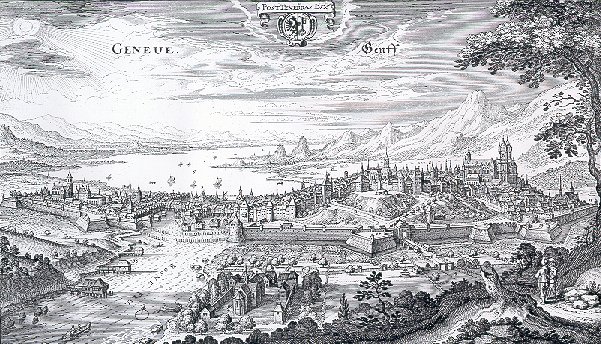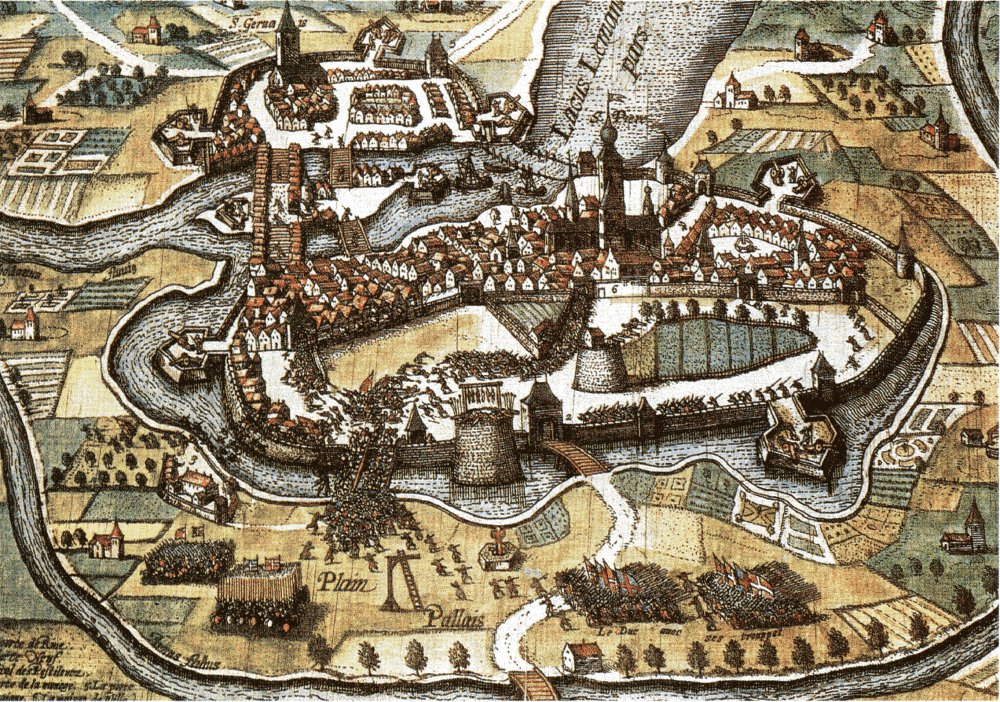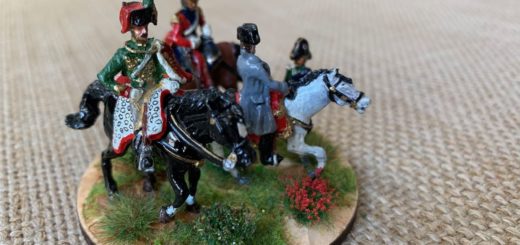1602, L’Escalade

On December 11 and December 12 (Old Style) 1602 â the darkest night of the year â the forces of the Duke of Savoy, under the command of the seigneur d’Albigny, and those of Charles Emmanuel’s brother-in-law, Philip III of Spain, launched an attack on the city-state of Geneva.[1] The troops marched along the Arve River at night and assembled at Plainpalais, just outside the walls of Geneva, at 2 o’clock in the morning. The original plan was to send in a group of commandos to open the gate door and let the other troops in. The Geneva citizens defeated the men by preventing them from scaling the wall (a climb in French is an escalade). The night guard Isaac Mercier raised the alarm, church bells were rung, and the Genevese were alerted. The populace fought alongside their town militia. The duke’s 2000-plus mercenaries were beaten. The Genevese lost 18 men in the fighting; the Savoyards suffered 54 fatalities and the troops had to retreat. Thirteen invaders who had been taken prisoner, including several well-born gentlemen, were summarily hanged the following day as thieves, since they could not be treated as prisoners of war, peace having been repeatedly sworn on the part of Savoy.[2]
According to Genevese legend, Catherine Cheynel, originally from Lyons and the wife of Pierre Royaume, (“Mère Royaume“), a mother of 14 children, seized a large cauldron of hot soup and poured it on the attackers. The Royaume family lived just above the La Monnaie town gate. The heavy cauldron of boiling soup landed on the head of a Savoyard attacker, killing him. The commotion that this caused also helped to rouse the townsfolk to defend the city.
After the defeat, the Duke of Savoy was obliged to accept a lasting peace, sealed by the Treaty of St. Julien of July 12, 1603.
La canzone che ricorda l’evento del 1602.




